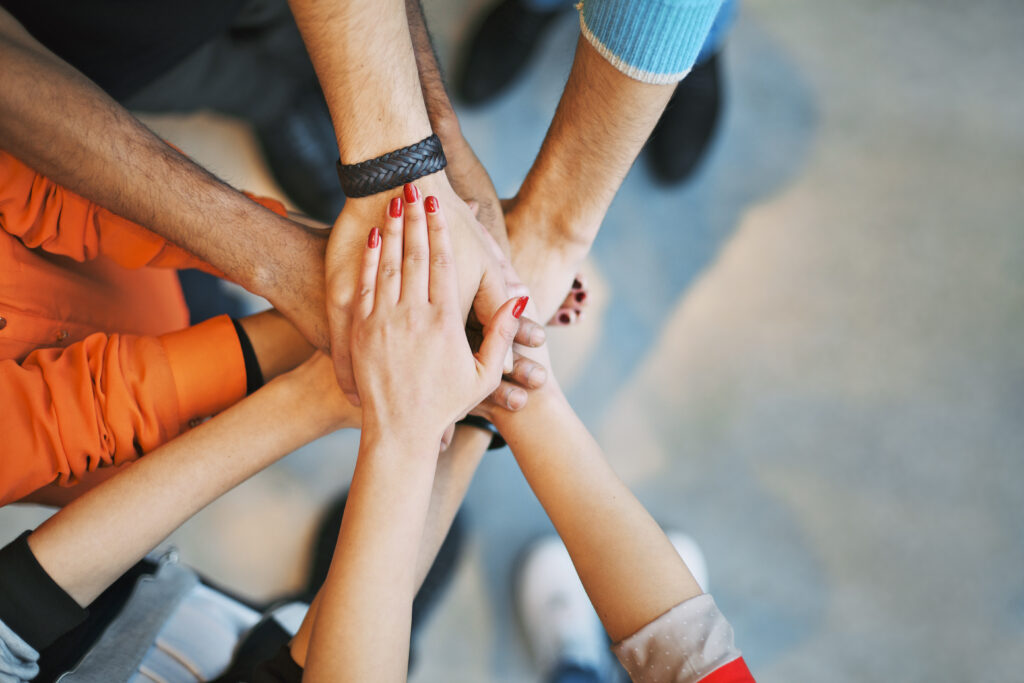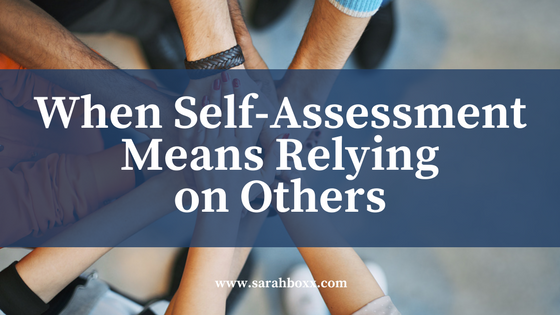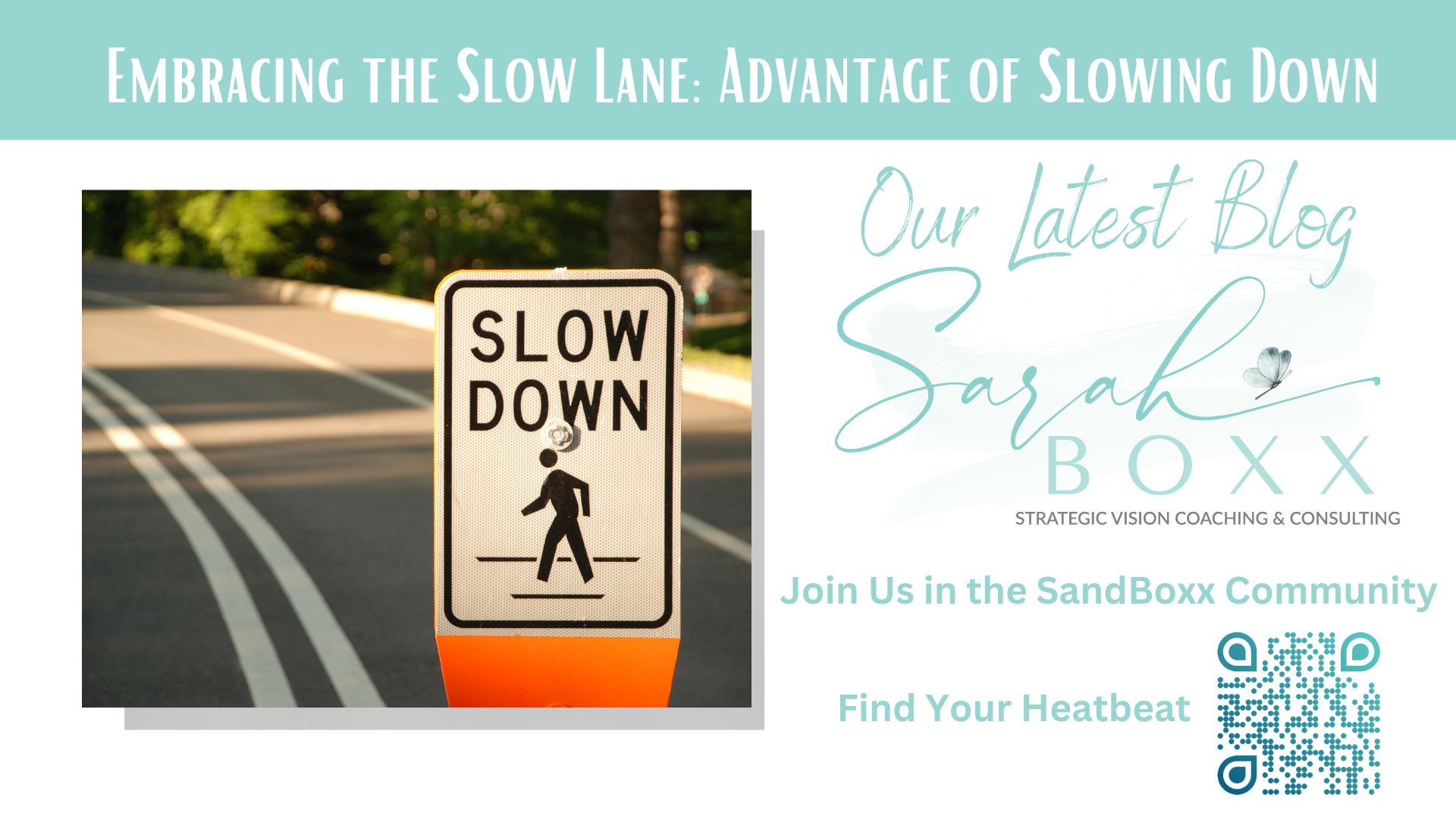 As we’ve been seizing summer, we’ve been talking about how to take advantage of the season to grow and focus on personal development in areas that might get neglected during the busier seasons. One of the best ways we can do that is by getting help or obtaining feedback from the people around us. Embracing feedback in all areas of your life is an important piece of the puzzle in your overall growth. Others can help you see progress – both in skill development and in your personal growth.
As we’ve been seizing summer, we’ve been talking about how to take advantage of the season to grow and focus on personal development in areas that might get neglected during the busier seasons. One of the best ways we can do that is by getting help or obtaining feedback from the people around us. Embracing feedback in all areas of your life is an important piece of the puzzle in your overall growth. Others can help you see progress – both in skill development and in your personal growth.
When I think about getting help and input from others, I’m reminded of one of the best bosses I ever worked for. During my years under his tutelage, he told me that one of the smartest things I could ever do would be to hire people who are smarter than me. His philosophy was to always seek out those who were better skilled and more knowledgeable and work with them. On the surface this might seem counter-intuitive, especially in work environments that are extremely competitive. However, his point was to embrace that I am rarely (if ever) the smartest person in the room. Just acknowledging that brings a ton of freedom into the situation. We can focus instead on how to lift others up and help them succeed. When that happens, both the team and the individual benefit. Which, in turn makes the company or community better.
This philosophy is my starting point as I approach getting help and getting or giving feedback when it comes to self-assessments. I admit, as a perfectionist it has taken me a long time to realize the goal of personal development is not to eradicate all weaknesses. Rather, the goal is to strengthen some areas and minimize the risks for me and my team in other areas. I do not have to be the best in every category, scoring high on every admirable category. What is important is to know that each day I am doing my best and that it Is better than the day before.
Over the years, I’ve taken many self-assessments. Some of them were part of my college education and some were part of self-directed learning. Most recently they have been part of a national pilot project I and five team members have participated in. We joined with 25 other members across the country took both the Myers-Briggs type indicator and the emotional intelligence 2.0 assessments. To provide you some context, each of our team members was selected because we represented a category of individual. Not necessarily because of our personality or skill sets. In their wisdom, the trainers for this program understood that each of us needed to understand the others in order for us to work well together. We needed to understand each other’s preferred styles under normal situations, as well as how we would each act under stress. Additionally, our emotional intelligence ratings provided insight into each of our strengths and respective Gap areas. You might think that knowing and sharing your results with others might feel risky for six individuals who are highly motivated and self-driven. However, it was just the contrary. Because we had established the high trust-level among the team, it was pure relief to share. I do not mean it was comfortable – it just means that I knew my team had my back when it came to strengthening the areas I was weaker in. The reciprocal, of course, is that I would do the same for them.
Having a clear picture of my strengths, as well as my GAP areas (weaknesses) gave me the ability to identify areas where I needed help in order to be more effective and achieve our goals. It was helpful to share that information with my team and for us to talk about how we can strengthen our work and each other by bringing our own skills and talents to bear.
What’s been amazing about this is that there’s been no judgment or competitiveness about who is better at what. Rather, the team has just naturally started to fill-in around each other and let those who are stronger in some areas step to the front when needed and then recede to the back when what’s required is another person’s skills.
I see this play out in my work with other colleagues as well. I am lucky enough to have found a virtual assistant professional with skills and talents that complement mine. We are a small team who manage my coaching services together.
As a partner with Social Entrepreneurs Inc., I also work with an extremely talented team of men and women. As I tackle each day, my focus is not on being the best, but instead on being the best version of me I can be. All the while, knowing that I can reach out to other teammates to strengthen the products and services I deliver.
What about you? As you look at your strengths, as well as your gaps, and take the results of your assessments, how can you involve others in growing your strengths? Are there people you can turn to in the areas where you are weak? Do you feel confident enough to ask for their help? During this last month of summer, we’d encourage you to the time to have a few conversations with the people in your professional and personal circles. See how they perceive your personality, talents, and strengths as they fit into the bigger picture.



